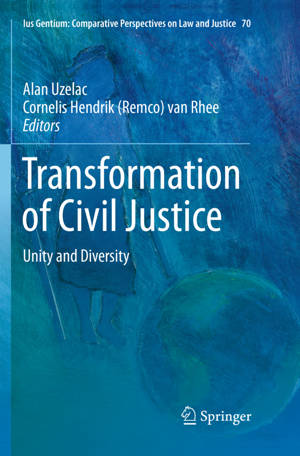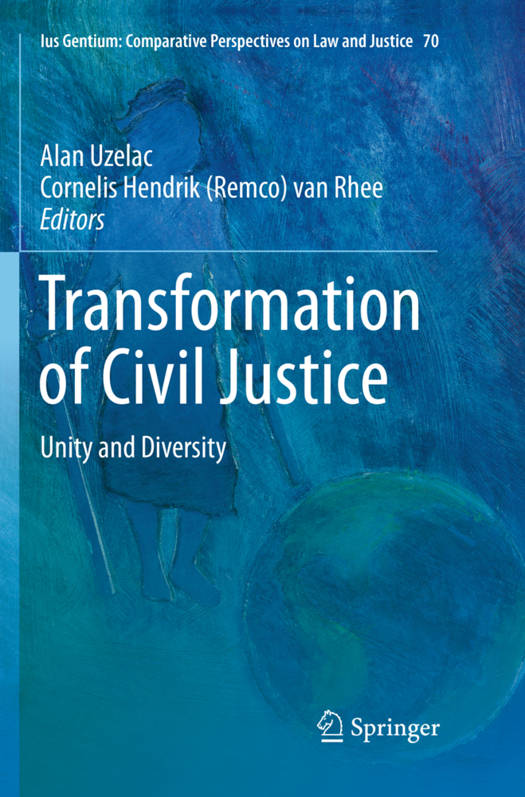
- Afhalen na 1 uur in een winkel met voorraad
- Gratis thuislevering in België vanaf € 30
- Ruim aanbod met 7 miljoen producten
- Afhalen na 1 uur in een winkel met voorraad
- Gratis thuislevering in België vanaf € 30
- Ruim aanbod met 7 miljoen producten
Zoeken
Transformation of Civil Justice
Unity and Diversity
€ 105,45
+ 210 punten
Omschrijving
National civil justice systems are deeply rooted in national legal cultures and traditions. However, in the past few decades they have been increasingly influenced by integration processes at the regional, supra-national and international level. As a by-product of the emergence of economic and political unions and globalisation processes there is pressure to harmonise or even unify the way in which national civil justice systems operate. In an attempt to create a 'genuine area of justice', new unified procedures are being developed, which operate in parallel with national civil procedures, and sometimes even strive to replace them. As a reaction to the forces that endeavour to harmonise and unify procedural laws and practices, an opposing trend is gaining momentum: one that insists on diversity and pluralism of national civil procedures. This book focuses on the evolution of procedural reforms in various jurisdictions and the ongoing transformation of national civil justice systems.
Specificaties
Betrokkenen
- Uitgeverij:
Inhoud
- Aantal bladzijden:
- 420
- Taal:
- Engels
- Reeks:
- Reeksnummer:
- nr. 70
Eigenschappen
- Productcode (EAN):
- 9783030073435
- Verschijningsdatum:
- 14/12/2018
- Uitvoering:
- Paperback
- Formaat:
- Trade paperback (VS)
- Afmetingen:
- 155 mm x 235 mm
- Gewicht:
- 884 g

Alleen bij Standaard Boekhandel
+ 210 punten op je klantenkaart van Standaard Boekhandel
Beoordelingen
We publiceren alleen reviews die voldoen aan de voorwaarden voor reviews. Bekijk onze voorwaarden voor reviews.










